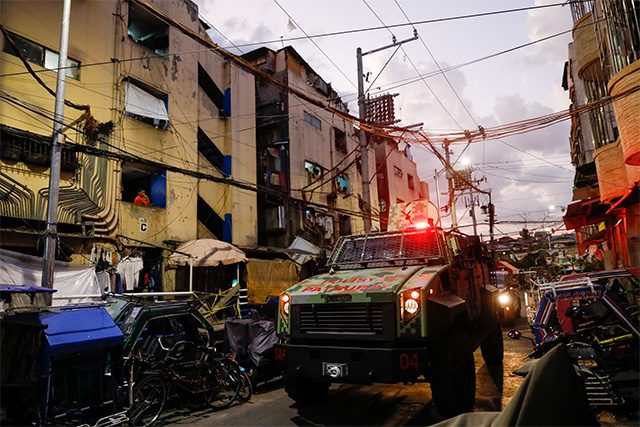
The Philippines‘ coronavirus task force has recommended President Rodrigo Duterte ease one of the toughest and longest lockdowns in the world for residents in the capital who have endured nearly 11 weeks of restrictions on activity.
Manila’s lockdown will this weekend surpass the 76-day quarantine of Wuhan, the Chinese city where the first outbreak of the highly infectious novel coronavirus was detected.
The recommendation came even as daily infections this week were the highest since April 6. Confirmed cases in the past six days comprise nearly 11% of the total 15,049 recorded, of which 904 led to deaths.
Health authorities have missed a target of testing 30,000 people a day, with nearly 290,000 conducted since January, equivalent to about 0.26% of the 107 million population
Duterte will address the nation on Thursday and his interior minister, Eduardo Año, said he believed Duterte will approve the recommendations. The easing could help to reduce damage to an economy that unexpectedly shrank 0.2% in the first quarter and is expected to fare worse in the second quarter. Mobility data from Apple for people driving shows how sharply activity slowed in the Philippines and how low it has remained compared to countries which also imposed tough lockdowns such as Italy and India. Under the more relaxed rules that will be in place from June 1 to 15, if approved, local officials can still place communities deemed as high risk under lockdown.
Gatherings of up to 10 people will be allowed, workplaces, shops and some public transportation will reopen and movement in and out of Manila will be permitted.
Schools, universities, tourist destinations, dine-in restaurants will stay closed, however, while stay-at-home orders will remain for the elderly and children.
Until two weeks ago, Manila’s measures were among the world’s toughest, on a par with those of Wuhan and stricter than curbs at the peak of contagion in Italy and in Spain, where a combined 484,000 people were infected, of which 60,000 died. —Reporting by Karen Lema, Additional reporting by Neil Jerome Morales Writing by Martin Petty Editing by Ed Davies









